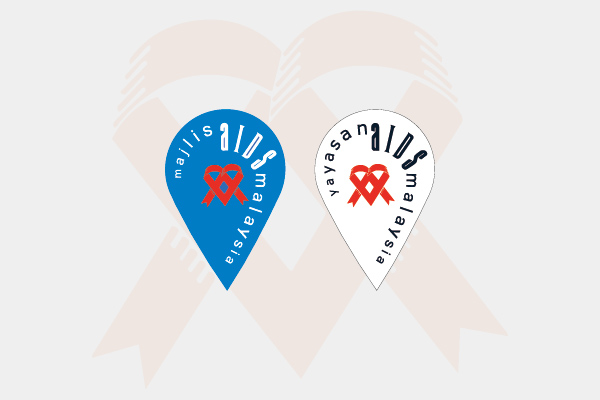Protecting dignity of LGBT and other HIV-impacted communities critical in ending AIDS

Announcement: Request for Proposal for Audit Services
June 1, 2017
GlaxoSmithKline – Malaysian AIDS Foundation RM1.25 M partnership drives critical enablers towards ending AIDS
June 19, 2017MEDIA RELEASE
For Immediate Release
KUALA LUMPUR, 4 June 2017 – We stand with the communities that we serve and others impacted by HIV and AIDS in expressing our concern and disheartenment over the National Creative Video Competition on Adolescent Sexual and Reproductive Health organised by the Ministry of Health (MOH) Malaysia for singling out “gender confusion (dysphoria)” and LGBT people as a scope of the contest, fearing the negative implication it has on the progress made in the ending AIDS response.
The MOH’s commitment to addressing the sexual health crisis – particularly among adolescents and young people in the face of the rising trend of sexually transmitted HIV – is, indeed, commendable. In the past decade, sexual transmission of HIV has recorded a 2.5-fold increase, accounting for 84 per cent of new HIV infections last year compared to 32 per cent in 2006.
In response to this situation underlined by the national goal of achieving a 90 per cent reduction in new HIV infections – or ending AIDS – by 2030, the MOH in partnership with the Malaysian AIDS Council (MAC) has introduced high-impact prevention strategies targeting key populations – men who have sex with men, transgender people, and sex workers. Community-based testing, an extension of the free anonymous voluntary HIV counselling and testing services provided at government health clinics, eliminates barriers associated with fear and stigmatisation by offering HIV tests conducted by peers of the affected communities themselves in a non-judgmental environment. Case management, another strategy to improve retention in the continuum of HIV care among key populations, customises the experience of each individual accessing government HIV health services – from testing and follow-ups to treatment and social support – to their own personal needs.
While these interventions are showing high service uptake, their impact on the epidemic relies heavily upon the environment in which they operate – specifically, one that respects the dignity of the communities they target including LGBT people. In fact, every strategy undertaken by MAC is informed by values and principles that protect and respect an individual’s rights to health free from discrimination and prejudice.
Singling out any segment of the society violates the core principles of equality, tolerance and compassion upon which the AIDS response was founded. While the aim of the contest to promote greater awareness of responsible sexual health behaviour is certainly appreciated, zooming in on LGBT people further perpetuates misinformation, stigmatisation and marginalisation of an already highly underserved and unjustly maligned group. This only undermines our efforts to reach out to them with lifesaving HIV education, prevention, treatment and support.
Evidence shows that in settings where key populations are stigmatised, targeted and persecuted, the AIDS epidemic thrives. In other words, if we continue to single out LGBT people for the spread of HIV, ending AIDS will sadly remain futile.
In addressing the rise in sexual transmission of HIV in Malaysia, the fact that both heterosexual and homo/bisexual populations are equally affected must be taken into account. Heterosexual and homo/bisexual transmissions in 2016 accounted for 38 and 46 per cent of all new HIV infections respectively, underscoring the reality that for sexual and reproductive health messaging to have an impact on a population level, equal emphasis must be given to all spectrums of the sexual divide. Messages of delaying sexual debut, monogamy and safe sex must continue and they apply to all regardless of sexual orientation and gender identity.
We recognise the invariably challenging and complex nature of promoting behaviour change as a means of HIV prevention in any population. Singling LBGT people out only makes the situation worse. Therefore, we urge the organiser to consider removing “gender confusion (dysphoria)” as a scope and any biased references to LGBT people from the contest.
As we continue to drive our efforts towards ending AIDS, we are looking to engage the MOH and our other strategic partners in more evidence-based dialogues, as well as efforts to establish the national task force on mitigation of sexual transmission of HIV, create more community-friendly sexual health clinics, and promote testing, treatment as prevention and the uptake of pre-exposure prophylaxis as a prevention option. Inroads have also been made into strengthening partnerships with the Department of Islamic Development Malaysia and the state Islamic religious authorities on HIV & Islam programming focusing on advancing evidence-based HIV prevention, treatment and care for Muslim key populations.
[ENDS]
Malaysian AIDS Council
The Malaysian AIDS Council (MAC) was established in 1992 to serve as an umbrella organisation to support and coordinate the efforts of non-governmental organisations (NGOs) working on HIV and AIDS issues in Malaysia. MAC works in close partnership with government agencies, the private sector and international organisations, to ensure a committed and effective NGO-led response to the HIV epidemic. In addition to providing nationwide coverage of HIV prevention, treatment, care and support services, MAC and its Partner Organisations serve as the common voice for communities most affected by HIV and AIDS in the country. Learn more at www.mac.org.my
Contact
Malaysian AIDS Council
Zaki Arzmi │ 016.292.2948 │ [email protected]
Meera Abi | 016.414.6400 | [email protected]

